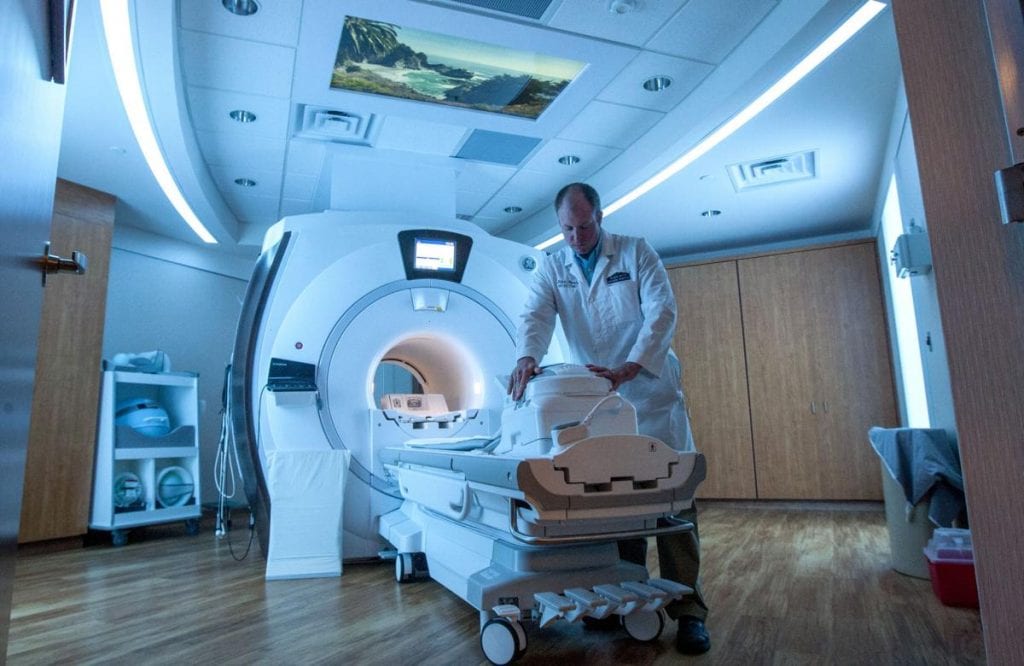Screening
There are several tests available for known or suspected cases of HHT. Since lung and brain AVMs can cause serious damage without warning, and they can be successfully treated, testing is strongly suggested for these AVMs.
Testing for brain and lung AVMs is often referred to as ‘preventative screening’, meaning the AVM is looked for prior to it causing a problem.
To screen for brain AVMs, an MRI is recommended. Current practice in Canada is to perform on brain MRI early in life, and then every 5 years until the adult age. Most brain AVMs are thought to be congenital (present at birth), but there may be some that develop in late childhood or adolescence.


Screening for lung AVMs is dependent on the age of the individual, and to a lesser degree their symptoms. During childhood, oxygen saturation should be checked every one to two years by finger oximetry done in both lying and sitting positions. Any subnormal result should be followed up with appropriate diagnostic testing. At 10-12 years of age, more sensitive screening should be done to rule out lung AVM(s). Currently in North America, a contrast echocardiogram (echo bubble) is usually recommended every 5 years to screen for lung AVMs in adults. It is a very sensitive test (meaning it will miss very few lung AVMs), but everyone with a ‘positive’ or ‘abnormal’ echo bubble test does not necessarily have a lung AVM large enough to require treatment.
To determine who requires treatment by embolization procedure, a chest CT scan is usually done to follow-up on a positive echo bubble test. If a pregnant woman has not recently been evaluated for lung AVMs, it is imperative to screen for lung AVMs as soon as pregnancy is recognized. Preferably, individuals with HHT will have screening for lung AVMs before pregnancy.

Lung and brain AVMs are the only problems associated with HHT for which pre-symptomatic screening is routinely recommended. Until lung AVMs are ruled-out by screening, a person with known or suspected HHT should be assumed to have lung AVMs and follow lung AVM precautions. In other words, that person should receive antibiotics prior to all dental work (even cleaning) or other procedures causing bacteria in the blood. The choice of the specific antibiotic should follow the American Heart Association guidelines (see Dental Care-Important Precaution). The goal of this precaution is to prevent brain abscess, which occurs when bacteria in the mouth enter the bloodstream during dental work, pass through a lung AVM and onto the brain circulation.
